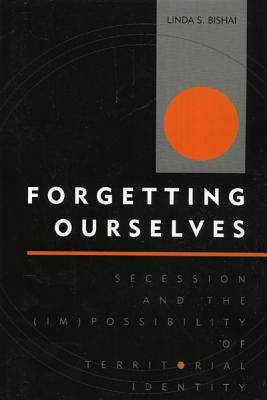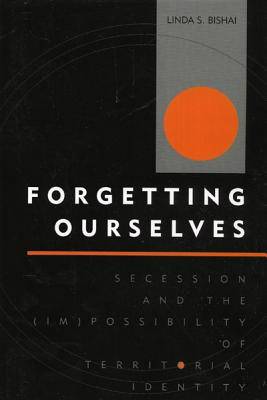
- Afhalen na 1 uur in een winkel met voorraad
- Gratis thuislevering in België vanaf € 30
- Ruim aanbod met 7 miljoen producten
- Afhalen na 1 uur in een winkel met voorraad
- Gratis thuislevering in België vanaf € 30
- Ruim aanbod met 7 miljoen producten
Zoeken
€ 89,95
+ 179 punten
Uitvoering
Omschrijving
Secession is one of the richest veins yet to be mined in international relations. The unexplored concept of secession implicates a host of historical accomplices related to the development of industrial modernity and considerable changes in the nature of sovereignty and the state. By historicizing secession it becomes possible not only to explain the historical transformations that have led to the theoretical impasse on secession but to better articulate the possibilities for current transformative interactions. In Forgetting Ourselves, Linda Bishai thoroughly examines why secession has been ignored by international relations both in theory and practice. Mainstream perspectives in international relations theory have, up to this point, questioned neither state formation nor the inside/outside divide of state sovereignty. Bishai, however, historicizes and questions the concept of secession itself, and the component assumptions of territoriality and identity upon which it rests. Forgetting Ourselves places secession in its proper historical context as something possible only in the modern era and only perceived as a global threat within the last century. Bishai argues that understanding the historic contingency of secessionist conflict allows us to contemplate an alternative vision of international relations in which the violence associated with controlling territory is no longer necessary for validating political identities.
Specificaties
Betrokkenen
- Auteur(s):
- Uitgeverij:
Inhoud
- Aantal bladzijden:
- 190
- Taal:
- Engels
- Reeks:
Eigenschappen
- Productcode (EAN):
- 9780739120828
- Verschijningsdatum:
- 5/12/2006
- Uitvoering:
- Paperback
- Formaat:
- Trade paperback (VS)
- Afmetingen:
- 152 mm x 229 mm
- Gewicht:
- 290 g

Alleen bij Standaard Boekhandel
+ 179 punten op je klantenkaart van Standaard Boekhandel
Beoordelingen
We publiceren alleen reviews die voldoen aan de voorwaarden voor reviews. Bekijk onze voorwaarden voor reviews.







